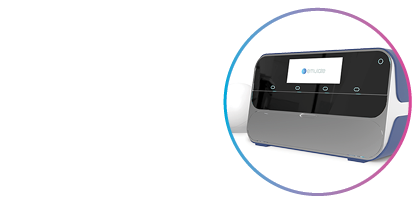Webinar Abstract
Immune cell recruitment is a key driver of complex human diseases such as inflammatory bowel disease (IBD) but has remained challenging to model due to the biological complexity and species-specific nature of immune response.
In this webinar, we show data on how researchers can use Emulate Organ-on-a-Chip technology to model colon-specific immune cell recruitment, including immune cell vascular attachment, migration, activation, and downstream effector functions.
The Colon Intestine-Chip is a physiologically relevant barrier model incorporating primary human colonic organoids and intestinal microvascular endothelial cells in a dynamic microenvironment with tissue-relevant mechanical forces.
By perfusing peripheral blood mononuclear cells (PBMCs) through the vascular channel in the presence of priming cytokines/chemokines, researchers can model the selective migration of ‘gut-specific’ PBMCs into the epithelial channel, where they secrete IBD-associated cytokines, kick off organ-specific inflammatory cascades, and induce the hallmark ‘leaky gut’ phenotype. In addition, the model has been demonstrated to recapitulate the efficacy and mechanism of clinically relevant, anti-inflammatory IBD therapeutics.
Watch this on-demand webinar to learn how you can use the Colon Intestine-Chip to develop more effective, targeted therapeutic strategies for IBD across an expanded pool of inflammatory pathways in a single model.
In this webinar, you will learn:
- Key challenges in modeling gut inflammation-specific immune cell recruitment
- How to use Organ-on-a-Chip technology to create a more human-relevant model of the colon
- How the Colon Intestine-Chip can be used model immune recruitment and assess the efficacy and mechanism of action of anti-inflammatory drugs

